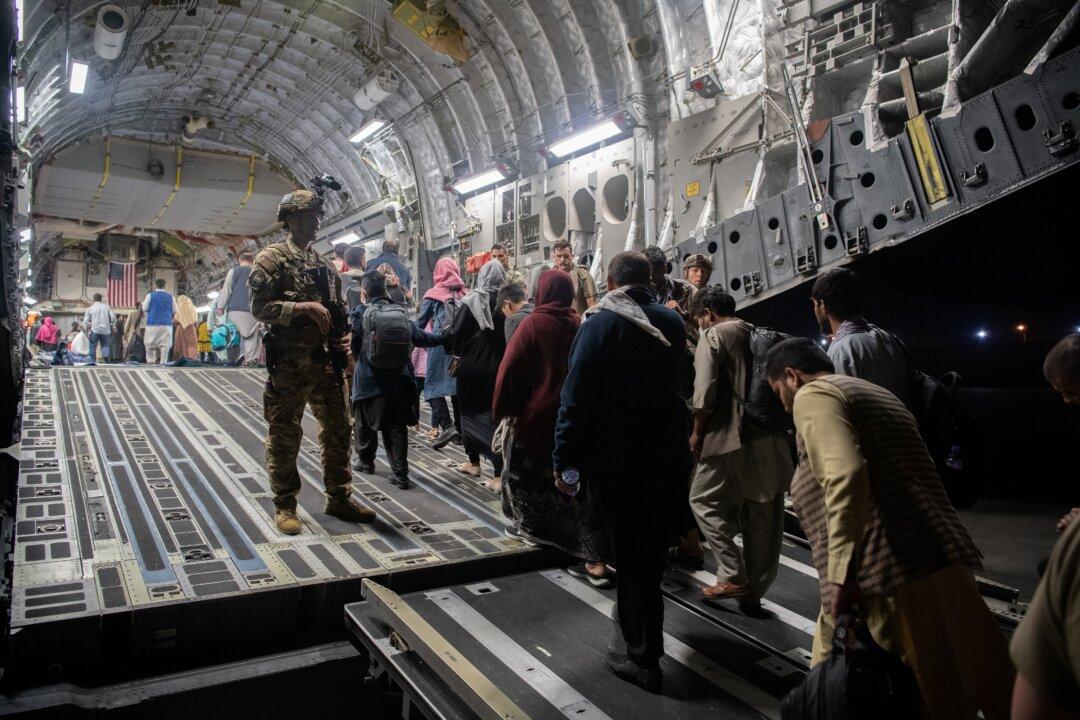Michigan governor Gretchen Whitmer has rolled out the red carpet for Afghan refugees and state and non-profit agencies are preparing for the influx.
“Now, as Afghan families flee violence and political persecution, it is our duty and honor to welcome them … The State of Michigan embraces the opportunity to welcome Afghan families as they find a new home to begin their lives,” said Whitmer in a statement released on August 20.
Whitmer said that a network of State of Michigan departments and agencies across Michigan are “gearing up to ensure” the Afghan immigrants “have the support they need to succeed.”
The first-term Democrat governor, who is running for reelection in 2022, did not say which state departments and agencies are gearing up. Nor did Whitmer say exactly what they are doing, or how many Afghan refugees they expect to receive and serve.
It is also unclear if the Whitmer administration will restrict the Afghan refugees accepted into Michigan to those who assisted American forces during the 20-year war, along with their families.
The Epoch Times asked the Governor’s Office for specific answers to these questions, but has not as yet received a reply.
The U. S. Committee for Refugees and Immigrants (USCRI) estimates that 80,000 Afghans helped the United States military or were affiliated with Americans in the country, and most of them have family members who are at risk of retaliation by the Taliban.
The Biden administration launched in July “Operation Allies Refuge,” a program designed to evacuate Afghan helpers, who have been issued a Special Immigrant Visa (SIV) in recognition of their service.
In addition to those helpers who have applied for Special Immigrant Visas, USCRI says that there are “hundreds of thousands” of Afghans seeking to escape Taliban rule.
On August 16, Mihaela Mitrofan, of the Michigan non-profit philanthropic organization Samaritas, announced on Detroit’s WXYZ TV that her agency is scaling up to serve 500 Afghan refugees.
With financial assistance from the federal government, Samaritas helps refugees find homes, employment, education, interpreters, language classes, and other resources. It provides foster care and therapeutic foster care for unaccompanied refugee minors. It also provides legal services to refugees at a nominal fee.
Jewish Family Services of Washtenaw County (JFSWC) has helped resettle refugees for 28 years. The organization posted a statement on its website addressing the present refugee situation, which reads, “The urgency and critical nature of this work is at a level that we have not seen before.”
In the statement the JFSWC declared it is “prepared to receive anyone referred to Washtenaw County by the U. S. State Department.”
JFSWC helps immigrant families with groceries, housing, learning English, applying for government benefits, and registering for school.
Several other Michigan refugee resettlement organizations have stated in interviews with Detroit-area media that they are hiring case managers, case aides, medical case managers, interpreters, and drivers to handle the expected influx of Afghan refugees.
To date, the Michigan non-profits are uncertain of the number of refugees they will be called upon to deal with.
According to the International Rescue Committee (IRC), 18 million Afghans are “already in dire need of humanitarian assistance,” out of a population of 39 million.
According to the U. S. Census Bureau, in 2019 Michigan had nearly 700 residents who were born in Afghanistan. The state’s refugee relief agencies report receiving many calls from these people seeking help for their relatives still in Afghanistan.
In a Sept. 1 online posting, the United Nations Refugee Agency, through the IRC, estimated that since the beginning of August, the number of displaced persons in Afghanistan has grown to 550,000.
The IRC estimates there are 82 million displaced persons in the world today.
As the United States receives thousands of Afghan refugees, Mexico has also stepped up to help.
“The IRC has launched a rapid emergency response in Mexico to support 175 Afghan evacuees who arrived on August 31, as well as other Afghans who will be arriving in the country,” according to the above Sept. 1 online posting.
It is unclear if Mexico will be the final destination of Afghans deplaning there.
A 2020 study by the Migration Policy Institute found the destination country of choice for the vast majority of the world’s refugees is the United States.
Emails received by The Epoch Times from “Borderless Magazine,” a publication advocating for open borders, characterize the present era as an “Age of Migration.”
However, receiving, caring for, and resettling refugees has become big business in the United States in recent years.
For example, financial statements (pdf) for BCS, a 501(c)(3) not-for-profit corporation, prepared by the accounting firm Plante & Moran, show the organization spent $25 million in total expenses for refugee and immigrant services in 2017. The figure grew to $35.9 million in 2019.
Salaries paid by BCS for refugee and immigrant services grew from $10.5 million in 2017 to $15.3 million in 2019.
In 2019, BCS had a total revenue of $138.5 million. It has 38 home offices in 36 states plus Washington D. C.*
*See also Bethany’s 2017 Financial Statement (pdf).





